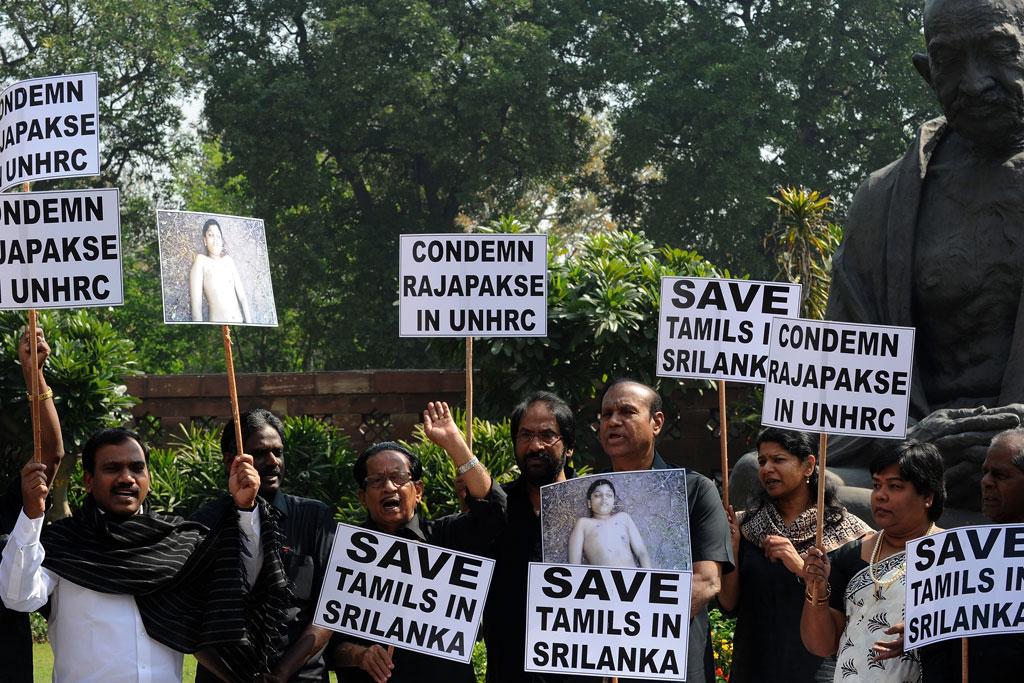Sri Lanka’s military says it killed 3 Tamil separatists in the first clash since the end of the war
Dravida Munnetra Kazhagam members condemn the killing of Tamilians in Sri Lanka at a protest in New Delhi on March 5, 2013.
Sri Lanka's military said on Friday it had killed three ethnic Tamil separatist militants, the first combat since government troops crushed the rebels in a 2009 offensive.
The government, heavily criticized by Western governments and the United Nations for alleged rights abuses in 2009, said the clash showed Tamil rebels were re-emerging in Sri Lanka's ethnic Tamil dominated north.
Both President Mahinda Rajapaksa and the military had previously said the Liberation Tigers of Tamil Eelam (LTTE) rebel group had been completely defeated when the 26-year war ended in May 2009, with no possibility of any resurgence.
Military spokesman Ruwan Wanigasooriya said the three men were killed after a confrontation with troops in the Jaffna peninsula. Two men had been identified as local rebel leaders and a third had yet to be identified.
Military sources told Reuters several servicemen had been wounded during the fight, but Wanigasooriya denied this.
The United Nations is launching an investigation into alleged war crimes committed by the military in the final phase of the conflict. The government has said it will not cooperate with the inquiry and it has rejected Western calls for demilitarization in the former conflict zone.
Last month, the military started a crackdown, arresting two human rights activists and two protesters from the Tamil minority under an anti-terrorism law.
Police Spokesman Ajith Rohana has said 65 Tamils have been arrested in the past month for alleged involvement in a possible revival of the LTTE, which sought an independent state from the 1980s and resorted to suicide bombings and other violence.
But some analysts cast doubt on any come-back.
"Given the heavy military presence, it is impossible to see a resurgence," said one political analyst who declined to be identified.
"I think the government needs to show the international community that the LTTE threat is still there and may want to justify its action, the heavy military presence."
Residents of the north say many former rebels are frustrated because of a lack of jobs and some complain of harassment by police and intelligence officials.
(Additional reporting by Ranga Sirilal; Editing by Ron Popeski)
Every day, reporters and producers at The World are hard at work bringing you human-centered news from across the globe. But we can’t do it without you. We need your support to ensure we can continue this work for another year.
Make a gift today, and you’ll help us unlock a matching gift of $67,000!
